The very seminal book ‘The Monetary History of The United States’ by Milton Friedman and Anna Schartz which l read in the course of my academic pursuits, particularly when l was trying to understand the causes and solution to the Great Depression, was too tedious.
In the book, Friedman, Nobel prize winning economist and Anna Schwartz identified four main policy mistakes made by the (U.S.) federal reserve – equivalent of Central Bank of Nigeria, CBN – that led to a sharp and undesirable decline in money supply in the U.S financial system that triggered the Great Depression.
All the four points bear so much resemblance to recent occurrences in Nigerian economy such as the introduction of the Treasury Single Account, TSA, and capital exportation restrictions ,that l could not resist sharing them in this piece, so that the current managers of our economy may draw some lessons in public policy administration and see how possible it is sometimes for unintended outcomes to create disruptions such that a solution to a challenge may lead to new crisis. The authors recalled that:
(1) in the spring of 1928, the federal reserve began to tighten its monetary policy (resulting in rising interest rates) and continued that same policy until the stock market crash of October 1929. This tight monetary policy caused the economy to enter a recession in mid-1929 and triggered the stock market crash a few months later.
Advertisement
(2) in the fall of 1931, it (federal reserve) raised interest rates to defend the dollar in response to speculative attacks, ignoring the difficulties, this caused to domestic commercial banks.
(3) after lowering interest rates early in 1932 with positive results, it raised interest rates again in late 1932, causing a future collapse in the U.S.economy.
(4) the federal reserve was also to be blamed for a pattern of ongoing neglect of problems in the U.S.banking sector through out the early 1930s. It failed to create a stable domestic banking environment by supporting the domestic banks and acting as lender of last resort to domestic banks during banking panics.
Advertisement
The book was so illuminating and thought provoking that although it was written way back in 1963, the four ‘sins’ of the federal reserve of the US that caused the Great Depression, which are the wrong headed monetary policy of capital control (being on gold standard) under then president,Hubert Hoover’s watch in 1929,and failure to stimulate the economy by creating economic activities in agricultural, construction and engineering sectors as his successor did.Failure to carry out the activities listed above on the U.S under Hoover appear to have been replicated in Nigeria in 2015 when 41 items (tooth pick etc) were banned from Import eligibility,signaling the resort to foreign exchange, fx rationing and instead of turning the country into a construction city to create employment and boost prosperity,no contracts worth even as little as N10m was awarded by the federal govt in the past one. The TSA which mopped up govt funds in banks and has almost asphyxiated the financial services sector as evidenced by the shortage of over one trillion naira in bank vaults compared to the same period last year is another culprit .The Nigerian stock market which suffered massive looses until last Thursday when the market responded positively to the new flexible exchange rate announcement was also not spared in the strangulation occasioned by uncoordinated fiscal policies of govt.
So it’s a kind of de javu to me that the adoption of a floating exchange rate by Nigeria on June 14 ,2016 was informed by similar challenges faced in the U.S.after June 2, 1929 when the U.S stock market crashed, triggering the Great Depression.
Despite the fact that the book was very illuminating ,it was too academic and didactic.
That’s why when l recently came upon the book ‘The money makers: How Roosevelt and Keynes ended the Depression, Defeated Fascism and Secured Prosperous Peace” written last year and published by Eric Rauchway, l seized the opportunity to take another look at the events leading to the Great Depression and how the USA was pulled out of it by Franklin Delano Roosevelt,FDR the 32nd president of the USA. relying on advice from John Maynard Keynes-the British economist who advised him to among other measures,take America out of the gold standard two years after England did.
Advertisement
It is important to keep in mind that pulling out of the gold standard by England in 1931 is the modern day equivalent to floating a country’s currency, a policy that has just been introduced by CBN’s Godwin Emefiele and president Muhammadu Buhari with a view to equally lifting Nigeria out of the economic dungeon that it is currently trapped in.
Could the duo of Buhari and Emefiele be on the cusp of history as our own version of FDR and Keynes? Time will tell.
It is important to point out upfront,that Nigeria’s economic malaise is not in any manner ,shape or form comparable to the Great Depression, however some of the factors that had compelled Nigeria’s joining of the popular global economic trend of floating their currencies are derived from the belief that during depression, a flexible exchange rate is critical.
With a weak aggregate consumer demand;falling oil prices; negative GDP growth; alarming inflation and unemployment rate as well as a huge backlog of payment of workers salaries by 27 state govt, situations that are currently the case in Nigeria,the nation is on the verge of a recession, which is why a flexible exchange policy is being adopted as a panacea.
Advertisement
I can testify that it is much more pleasurable to read the book ‘The Money Makers’ which gives credence to FDR’s introduction of the New Deal,a set of fiscal measures combined with the monetary policy of pulling out the USA from the gold standard in 1933, to manage the Great Depression, so I recommend it to President Muhamadu Buhari and his economic team.
Now, I have had the privilege,in several articles that l have written in the past one year to encourage the president to emulate FDR’s politics and borrow one or two leafs from his economic blue print, as I believe it is the best escape route out of the socio-economic doldrums in which Nigeria is now mired.
Advertisement
In an article titled “Buhari: Accepting the Past, Facing the Future”, published in January, I wondered aloud about the presence of IMF president Christine Lagarde in Nigeria and advised Mr President that,unlike during his first coming as a military head of state, when he was considered ‘cold’, this time , he should strive to be as gentle as a dove and as wise as a serpent (a biblical injunction ) in his dealings with the multi lateral financial intervention agency.
Here is precisely what l wrote then: “Although Christiane Lagarde, the visiting IMF boss has affirmed that Nigeria does not need IMF intervention and avers that the Brenton wood institution is not in Nigeria to lend her money but to help build strong tax and debt management system, eyebrows are being raised in some quarters.The concern is magnified by the fact that Lagarde is calling for relaxation of tight monetary control measures introduced by CBN to stabilize naira.Her request is by and large a call for naira devaluation, so given that president Buhari had assured Nigerians during his maiden media chat that naira won’t be devalued, there is need for govt to explain the presence of the IMF to Nigerians”.
Advertisement
Today, after about one year of resistance that resulted in severe economic crisis such as the downward slide of all development indices in Nigeria including dropping from the position of the world’s number 2 in global ranking of FDI destination , 2 years ago, Madam Largade’s desire for flexible exchange regime in Nigeria is being fulfilled through the new policy announced by the CBN, June 14,2016.
Hopefully, the privileges which countries that honor IMF requests and heed her advise would follow.
Advertisement
Take the republic of Georgia for example.When in 1991,that country that broke away from the former Union of Soviet Socialist Republic, USSR, the West as represented by the IMF and World Bank embarked on a mission to make that country a model for economic reforms and liberalization and did everything possible to grant her easy access to cheap credits required to tide her through the difficult challenges she had to put up with after exiting USSR and floating her currency-the Lari.
In my article titled “Can Buharinomics Pull Nigerian Economy Back From The Brinks”, also published in October on both mainstream and online platforms, l shared the opinion that “The consequences of the devaluation(Lari Georgian currency) was liquidity crunch in the banking sector as it is in Nigeria now.Resort to borrowing from abroad was Georgia’s fall back position.It was easy for European and American banks to lend money to Georgian banks because it was being propped up as a beacon of hope and model for east European countries under the yoke of Russian socialism.
Can Nigeria benefit from such Western powers largese, if she devalues and suffers any liquidity crunch?
“Although former Nigerian president Olusegun Obasanjo was able to secure a debt write off of a substantial amount (over $12b) at the nascent stage of our return to democracy, a lot of things have changed since that time and l sense that such commitment would be difficult to to extract from Western creditors now, especially in the light of the price of oil/ gas which Nigeria relies on for fx income”.
My views in the article indicate that , way back in October ,l already believed that despite the dilly dallying,president Buhari would eventually heed the call for more flexibility in naira/fx exchange by both local and international economic pundits.
Hopefully, if the recently announced implementation date of the flexible exchange rate regime from next monday 20th June becomes reality, it Is speculated that the exchange rate with the dollar which is now hovering around N365/$, would find equilibrium may be at around $250/$.
If nothing’s else the new fx regime would usher in some certainty which would ease planning for manufacturers and other entrepreneurs.
This means there is cause for economists,bankers and business men and women to celebrate the recent development in the financial services sector ,which seems positive,but Nigerians should be cautious not to create the erroneous impression that the creation of a flexible exchange rate regime would be a sort of economic nirvana and Eldorado signaling the reversal of all nation’s economic woes.
The argument by advocates of devaluation of the naira has always been that England exited the gold standard which is the equivalent of capital control or pegging of exchange rate to escape the Great Depression.
That may be true and the circumstances may be similar, but the dynamics are different now, so we can’t afford to be complacent enough to believe that the removal of fx trade restrictions is an end in itself and therefore a magic bullet that would relieve Nigeria of all the burden arising from plummeting crude oil price, massive corruption and maladministration over the years.
In my reckoning, the economic fundamentals in England that necessitated the scrapping of the gold standard during the economic depressions beginning from 1929, were quite different from the situation in Nigeria now,hence the authorities seemed to have been in quandary about how to go about it and thus dithered in the past one year.
For instance, agricultural produce which was the main export commodity in those days-wheat etc- which were in great demand worldwide were controlled by the U.K and her U.S allies hence they were able to enjoy comparative advantage in its output.They also occupied pole positions in technological advancement and therefore had great export potentials, but Nigeria has no such luxury.
Right now, although Africa has comparative advantage in agriculture,the nation is unable to sustain her food need, how much less export and neither does she have any experience in the production of technological items such as iPhones, airplanes or even motor cars which provide incentives for countries to devalue or float their currencies to boost export trade.
At least that’s the justification that president Buhari and his close advisers had been holding onto and they have a point, but that can not be a cogent excuse for sticking to a policy that is counter productive for so long.
They needed to think out of the box and thank goodness, the president has now decided to cure Nigeria and Nigerians of the perennial ailment of grandiose illusion of the naira, in terms of exchangeable value for it. Incidentally, president Buhari is not the only Nigerian with an exaggerated impression of the naira. Most of our compatriots who were in leadership positions or around in the 1970s when Nigeria started reaping bountifully from newly found oil wealth,share similar grandiose illusion of Nigerian currency.
Indeed, the bloated value of the naira which gave the currency exaggerated gait emanated from that time. lt is worth recalling that in the hey days of oil boom in the late 1970s, former Nigerian head of state, Yakubu Gowon, reportedly proclaimed that our country had so much money, she did not know what to do with it.
Our oil wealth flushed country, thereafter hosted a lavish party for black people from all over the world, tagged festival of arts and culture, FESTAC in 1977.
From that lofty height, Nigeria’s economy has since gone bust as reflected by the challenges faced by Shehu Shagari’s govt from 1979 to 1984 when oil prices crashed from $30 to as low as $13 per barrel.The perilous times were carried over into the Buhari era as military head of state from 1984-1985, compelling the ban on foreign imports and introduction of queues for purchase of so called essential commodities comparable to the present situation in Venezuela.
The Ibrahim Babangida austerity measures, after he took over the reins of govt in 1985,birthed the Structural Adjustment Program, SAP of 1986, which was the alternative to taking the infamous IMF loan that then general Buhari detested and most Nigerians, also loathed.
While the president govt has, at least acknowledged that Nigeria is no more as rich as it was in the mid 1970s and identified the folly of being stuck in the past, it took too long in accepting the fact that pegging the Naira is foolhardy,but as the saying goes, it’s better late than never.
The commendable acceptance of reality by the authorities has now enabled her creatively find a workable variant of flexible exchange mechanism by floating the naira.
The novel policy may not necessarily be in the same mould of FDR and his team’s package back in 1933, but presumably,a long period of critical thinking has culminated in the announcement by CBN governor Godwin Emefiele on Wednesday June 14, 2016.
With such sea change in Nigeria’s foreign exchange policy ,govt has chosen to expand her horizon by not just sticking to the era of former finance minister, Ngozi Okonjo-lweala’s policy of selling treasury bills/bonds at exorbitant rates that attracted a motley crowd of portfolio investors whose funds are short term and can hardly be invested in the real sector.
Under such circumstances, the question remained, how do we obtain long term funding support for the real sector which should constitute the cornerstone of any economy of substance?
How could policies that would boost the confidence of international entrepreneurs and encourage them to bring in Foreign Direct Investments, FDIs into Nigeria to boost growth in the real sector , be fashioned out and sustained? Is the recent decision to float the naira adequate catalyst, or a combination of both fiscal and monetary policies as FDR and Keynes did back in 1933 and what are the fall back positions of govt, should the floating of the naira strategy prove not to be as efficacious?
The pertinent questions above, to me are what the authorities in charge of the economy should urgently seek viable answers to.
This is more so because countries like Japan have been experimenting with the FDR economic stimulus model-referred to as Abenomics – named after current Japanese president, Shinzo Abe for a long while without success.
If Japanese economy which is technologically driven with a plethora of high technological inventions and brands like Toyota to export has remained in deflation despite the FDR type financial stimulus so far implemented,what guaranties do we have in Nigeria that as naira is now being floated, FDIs would start flowing into our economy as flexible exchange policy advocates contend?
Perhaps the fact that japan is home to the largest ageing population and therefore suffers from a declining workforce and also has no room for further growth as the economy has attained saturation status ,may be the constraint.
It may be argued that in contrast to Japan ,Nigeria’s population is comprised of about 60% of youths and therefore enjoys the advantage of a virile workforce, plus abundant capacity for growth and these could result in a different and more positive outcome for Nigeria than it did in Japan.
Other factors that could influence a different and better outcome for Nigeria is that while Japan’s debt of roughly $9tr , which is almost double her GDP of about $5tr, is probably the reason the country is still stuck in stagflation (a worse type of deflation) despite application of several financial stimulus measures,opposite is the case in Nigeria where 13% post re-basement debt to GDP ratio is quite healthy. Hopefully, with ample room for growth in infrastructure investment, Nigeria is more likely to respond better to financial stimulus than Japan.
After all said and done, my honest view is that neither would devaluing or not devaluing the naira per se,nor would mere floating of the naira necessarily pull Nigerian economy out of the woods.
Rather, the combination of both monetary and fiscal policies,in addition to a positive perception of a focused economic team being at the helm of affairs in Nigeria ,instead of mere dependence on the body language of the president-who is not exactly a financial guru-would be the game changer.
This implies that less interference by the presidency on economic matters would make a huge difference in the restoration of confidence in Nigeria by both local and international investors again.
Mr president’s spectacular endorsement of a flexible foreign exchange rule for the Naira, in his opinion article in Wall Street Journal,WSJ, earlier in the week is a huge confidence booster ,as it’s a marked departure from his initial hard stance.
Once confidence returns,the dollars that have taken flight back overseas or buried in septic tanks in homes in Nigeria, would return to the economic system to fuel the engines of production once more.
The best news is that president Buhari has undergone a lot of political metamorphosis in the past one year,since assumption of office such that he will now be tagged with leaders like FDR and Obama of USA as well as Abe of Japan in matters of economic development.That is no mean achievement.
From being very taciturn at the nascent stage when governance was carried out via ‘body language’, he is now talking and better still, he is even writing OPED articles-first in Washington Post and now WSJ.
Mr president has also graciously accepted the removal of the controversial fuel subsidy which he initially opposed because he feared its removal would hurt the poor masses whose interests are very close to his heart and now the floating of the Naira, which he was initially vehemently opposed to, is today an official policy of Nigeria.
Most captivating of all the gestures is that Mr president appears to have backed down from his initial threat to apply deadly military force in quelling renewed insurgency in the Niger delta, to a negotiated settlement with the militants. Although the non violent approach in the Niger delta is yet to yield the desired dividends, there is hope that dialogue would achieve better peace than matching violence for violence which would only result in peace of the grave yard in the treasure trove of Nigeria.
The evolution of president Buhari into a more liberal and dynamic leader is as encouraging as it is cheering. especially as it is already making a difference in governance, as he enters the second year of his four year tenure.
However, his advisers must not nurse the erroneous impression that the president’s backing down on issues he initially had contrary views , affords them the pleasure of resting on their oars.
On the contrary president Buhari’s new attitude of not sticking to his guns (literally speaking) in my view is conditional to the new concepts being implemented more efficaciously than his original thoughts and with more positive outcomes.
Failing to ensure that these new measures that he has reluctantly acquiesced with , would yield quicker more positive turn around of the fortunes of Nigerians,could result in disappoint to the president and cause him to revert to his comfort zone of command and control, which would not bode well for Nigeria and Nigerians.
This is why, in order to achieve a more holistic effect and better outcome of both the fiscal and monetary measures so far introduced , the next thing govt should focus attention on is the yuan/naira swap deal, struck during president Buhari’s recent trip to China.
For the reasons earlier cited, the Chinese deal should be consummated without further delay.
After the take off of the new flexible foreign exchange trading system next Monday, the CBN should shift focus to how to add flesh to the bones which the much vaunted yuan/naira swap has been since it was announced.
That would simultaneously enhance Nigeria’s foreign trade with both the Western world- USA/Europe and Eastern world -China/Asia,out country’s two largest trading market partners.
Right now, whether president Buhari’s positive change in economic outlook by becoming less tedious and having an expanded and broader world view, would gain more momentum and be sustained when he returns from his current medical tourism to the U.K., is a prospect that Nigerians are anxiously trying to decipher.
Nevertheless, a combination of plummeting oil revenue resulting in the present economic meltdown, plus a floating Naira may not augur well for a nation in dire need of economic elixir, if the leadership is not dynamic and astute.
Worse of all, the nation may be in double jeopardy if the new policies are truncated as opposed to being pursued to their logical conclusion.
So our prayers should be that Nigeria makes it through the dark hours.
Onyibe, a development strategist, futurologist and former commissioner in Delta State is an alumnus of Fletcher school of law and diplomacy, Tufts university, Medford Massachusetts, USA.
3 comments
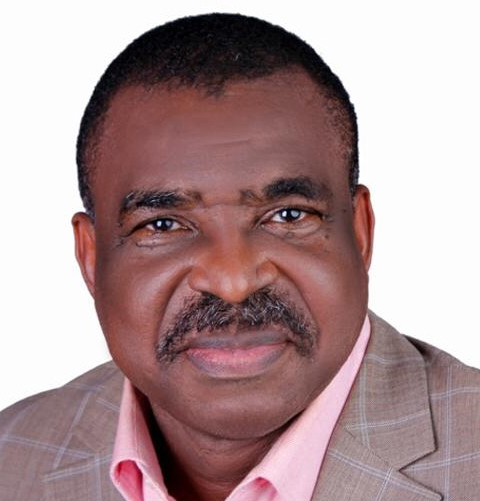
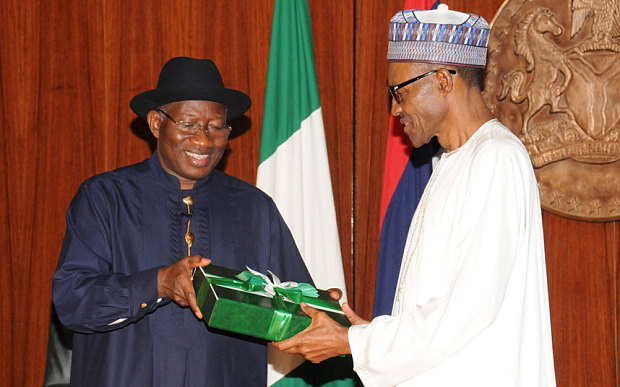
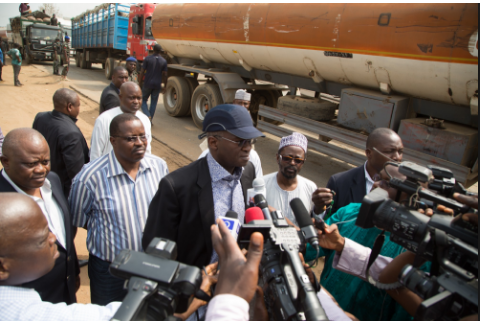

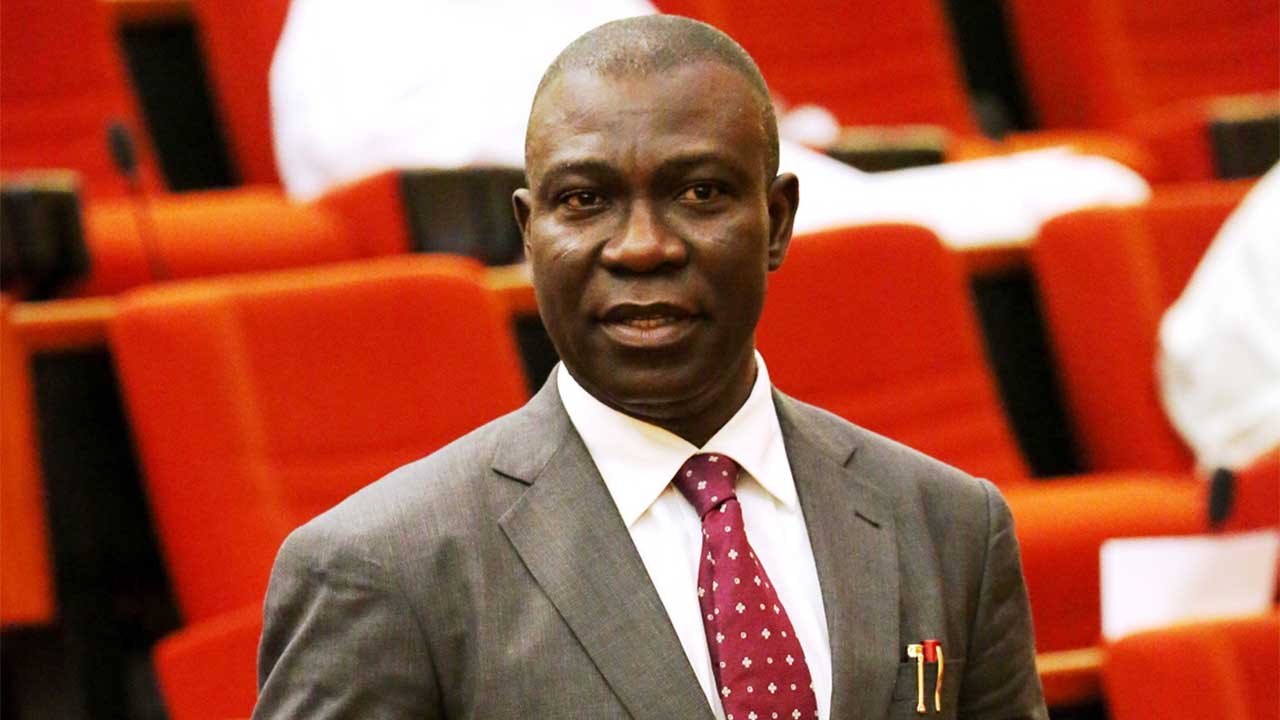
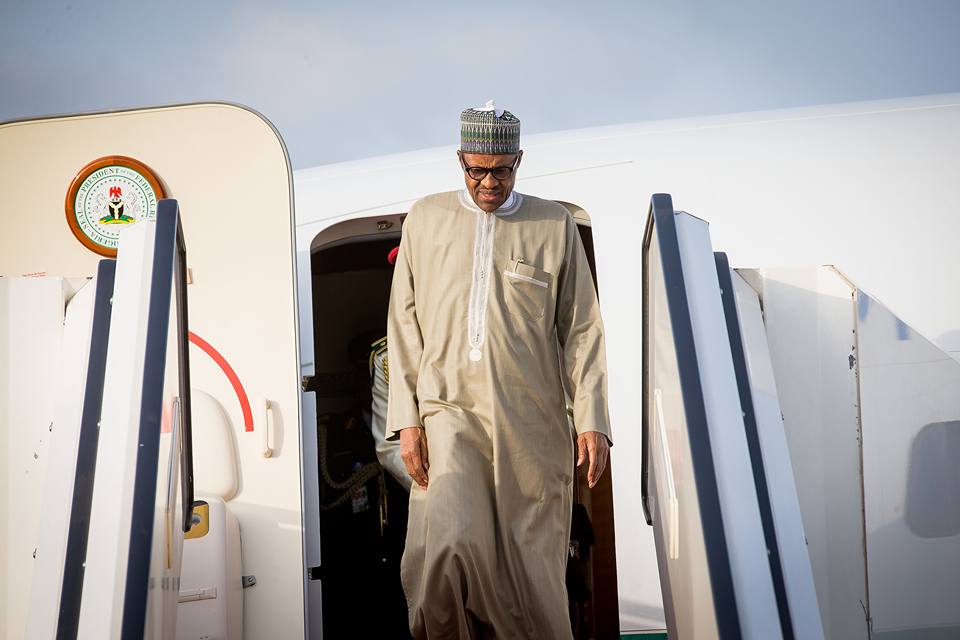
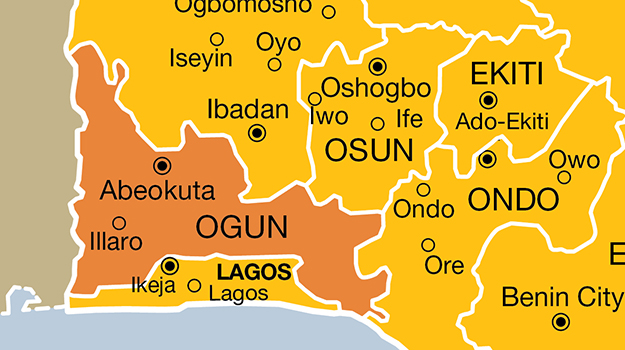
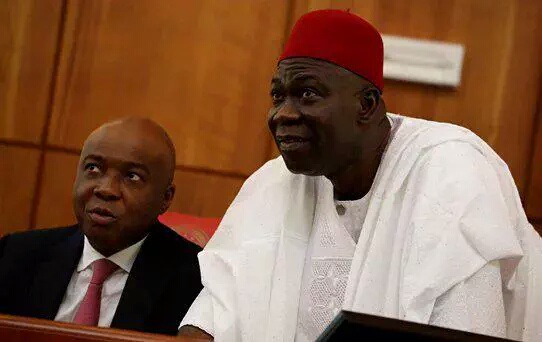
I read all my newspapers and publications online but, as a matter of principle I do not usually comment on the online articles. Such commentary quickly degenerates into tribal wars, Jonathan Vs Buhari arguments, or volumes of insults between PDP and APC sympathizers. However, when as this writer has done, recommendations have been made to General Buhari on weighty National economic issues, one is compelled (as an economist) to clear some of the grave misconceptions in the article.
It appears to me that the writer has not read the work of Milton Friedman that he refers to. If he has, he obviously did not understand it. What I see is that the writer has simply copied and paraphrased a three page Wikipedia summary of the subject which does not explain the underlying logic for Friedman’s conclusion.
What Friedman did was to analyze the U.S money supply for almost 100 years(1867-1960) Money supply in the U.S decreased by about 33% between 1929 and 1933. His argument is that it was wrong for the Federal Reserve Bank to have allowed or actively pursued the reduction in money supply at a time of massive economic contraction and no inflation. The logical thing for the writer to have done is also to examine the money supply and inflation situation in Nigeria during 2015 and 2016. This is readily available from the CBN website.
Such a review shows that money supply as measured by M2 increased from N18.98 trillion in January 2015 to N20.47 trillion in March 2016. There was no significant reduction in money supply during this period. More importantly inflation has risen from 8.20% in January 2015 to 12.77% in March 2016 and has dramatically moved to 15% last month. In the face of such galloping inflation, it would have been very reckless if not criminal for the monetary authorities to increase money supply any further. In short, the monetary fundamentals are completely different between the two periods.
The second misconception is that TSA is the major source of stress in the Banking system and illiquidity in the macro economy. This again is wrong. The TSA arrangement is a flow and not a stock; money flows into the TSA account and flows out as it is being used by the relevant MDAs. Also we need to consider the relationship between the TSA Deposits withdrawn from the Banking system and the CASH RESERVE ratio (CRR) imposed by the CBN. At the time the TSA was implemented CRR in respect of public sector deposits was 75%. Assuming there was N1 trillion public sector deposits in the Banks, the CBN had already taken N750bn from the Banks by way of CRR. So when the N1 trillion was withdrawn into the TSA, the CBN returned the N750bn to the Banks with a net loss of N250bn. This is not significant being just 2% of the total local currency deposits of about N12 trillion in the deposit taking Banks.
Contrary to what the writer is saying, Keynes did not advise President Roosevelt (FDR) to leave the Gold standard. The first time Keynes contacted FDR (and this was not even a direct contact) was in December 1933. America left the Gold standard in June 1933. There was no part of that communication where Keynes advised FDR to leave the Gold standard. Keynes did not meet with FDR until 1934. When they met FDR did not really think much of Keynes at that time. He complained that Keynes sounded more like a mathematician than an economist. The records actually show that in 1937, FDR and his team substantially decreased the stimulus spending (Keynesian type stimulus) under the advice of the classical economists in the white house and the economy fell back into another recession (called the “Roosevelt Recession” 1937-38). It was after this bitter lesson that FDR started to appreciate Keynes’ work.
The writer is suggesting that the Nigerian Economy needs an FDR type stimulus but that Buhari is not doing that. That is also not correct. The federal budget has been increased to N6 trillion from N4.5 trillion. Capital expenditure is in the order of N1.6 trillion. This is a massive Fiscal Stimulus. Furthermore, the Federal Government has provided relief to State governments to enable them pay salaries, another stimulus. The government is also implementing programmes to help the poor and unemployed with training, cash transfers and the like. This is exactly what FDR did in the New Deal. The difference is only in nomenclature.
I am not quite sure where the writer stands on the devaluation. It appears initially that you did not like what the IMF suggested but appear to be saying that now that it has been done, let us see how it goes.
Faced with such massive shock to oil prices (and now oil production) and the consequent decrease in our dollar revenues, an adjustment of the exchange rate becomes inevitable. You do not need to go back 80 years to the Gold standard to explain this. Britain lost a financial fortune when the chancellor tried to defend the Pound Sterling in 1992 during the ERM crises. Fighting for an unsupportable peg, Britain was forced to devalue on Black Wednesday (16/09/92) with significant loss of reserves and reputation. I believe the Government has taken a very good step on this matter and should be encouraged.
On FDI, the writer seems to be suggesting that Nigeria has fallen off the cliff and that devaluation will not help. In the first place, Nigeria has never been number two in the global ranking of FDI destination. The World Investment Report 2016 published by UNCTAD, gives a table of all FDI flows worldwide. Nigeria is not even in the top 20. The US ($380bn), Hong Kong ($175bn), China ($136bn), Ireland ($101bn), and the Netherlands ($73bn) are the top 5. Africa as a whole got $54bn less than half of what China got. In Africa It is true that Nigeria was number 1 in 2012 but now ranks 3rd behind Mozambique and South Africa. Macroeconomic stability is a major factor in attracting Foreign Direct Investments and a clear, sustainable exchange rate policy is a major component of that stability.
Again on Japan, the writer wonders if stimulus has not worked in the advanced economy of Japan, how we could expect it to work here. In the first place, it is wrong to say that Japan has stagflation. Stagflation occurs when an economy simultaneously has both inflation (rising prices) and unemployment (or recession). Japan does not have any inflation right now. And stagflation is not a form of deflation as stated by the writer. Japan has a completely different problem from Nigeria. Japan is suffering from what economists call “secular stagnation” and structural changes will be required way beyond fiscal and monetary stimulus. There is really no basis for comparing Nigeria with Japan. Nigeria has its own problems but they are not the same as Japan’s.
Finally, the writer accuses government of not thinking outside the box. That may be true. One would have expected the writer (who I suspect must be good at thinking outside the box) to come up with specific actionable policy recommendations for government to act on instead of these hazy generalizations which are not really helpful. Nigeria is not for General Buhari alone. We must all address the country’s problems with the seriousness and diligence required
The response by professor Ajibade is instructive. The corrections to the original piece are well appreciated. However even as an informal student of economics two things are clear to me especially from hard evidence, common sense and the visible situation on ground
1. The Government did interfere with monetary policy earlier on when it pursued a fixed exchange rate for almost a year. The government did show what I will refer to as restrictive (even if not contractionary) monetary tendencies. M2 money supply may not be a sufficient Metric in this regard.
2. Whatever Fiscal stimulus the professor is referring to appears to be merely on paper as the economic realities on ground are not indicative of a stimulated economy
Whether by virtue of poor formulation or execution , The fact of the matter is that the government appears to have pursued monetary and fiscal policies that have created uncertainity, negatively affected national productivity and foreign investment.
It appears that the professor endorses the monetary and fiscal tendencies of the current government. I am unable to understand this position relative to the 2 buletted points above.
Again I greatly appreciate both the opinion in the original piece and the response of the Professor.